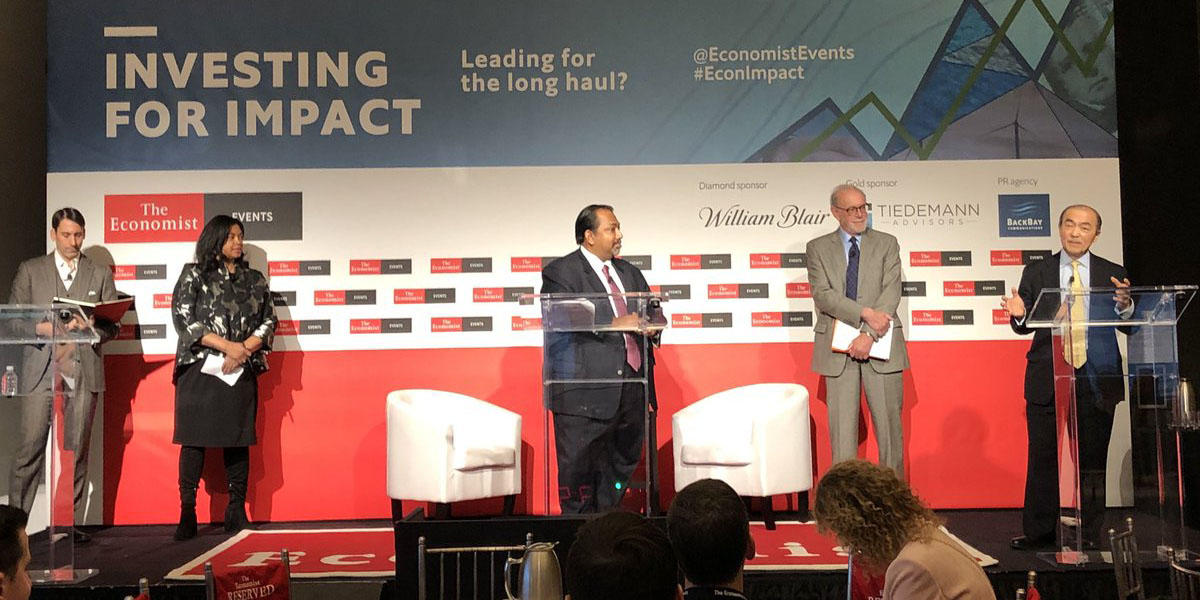New York, NY – The Oxford-style debate at Tuesday’s Economist impact investing forum in New York was less a debate on the motion – “This house believes that impact investing will turn out to be the most profitable way to invest” – than a dialogue about how to make it so.
Goldman Sachs John Goldstein led with a definition on the nuance of “profits,” arguing that profit can be anything that is deemed beneficial. Beeck Center’s Lisa Hall spoke of the strength and diversity of talent attracted to impact investing. “Don’t we want better talent managing our portfolios?” IGNIA’s Michael Chu pushed for more clarity around what constitutes an impact investment. With so many ways of deploying capital under a single name, he said, “you have to conclude that this is more confusing than clarifying.” Stanford/Columbia University’s Ronald Gilson cautioned against faith in impact funds that only tie performance to financial returns. “If they don’t believe they can do [impact], there’s not reason you should think they can.”
More from New York:
- Follow the talent. Ellevest’s Sallie Krawcheck touted the diversity of her startup, which now manages more than $250 million on behalf of everyday women investors. More than 50% of the company is female, including its engineering team; more than 66% of leadership is female; and more than 40% is non-white.
- Beyond the margins. Acumen’s Leslie Labruto, speaking on a panel on climate finance, called into question the intent of oil and gas companies’ experimentation with impact funds and renewables investments. “Is a $5 million initiative significant” for an oil and gas company? “No. We need to see eight- and nine-figure investments” at a time, she said.
- Reining in the winners. Winners Take All author Anand Giridharadas laid out ideas to incite the change he advocates. First up: A “moratorium on impact investing, until finance unwinds its complicity,” he said. Giridharadas also called for a crack-down on billionaire tax evasion and tax havens, better collective bargaining for the working class, and ending class segregation in the U.S.
*An earlier version of this article misquoted Giridharadas as saying “…until finance unwinds its complexity” and Labruto as saying “…a $500 million initiative”. We regret the errors.











